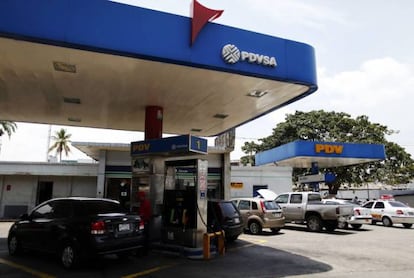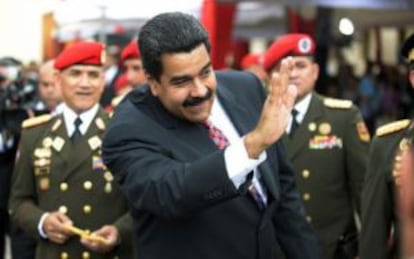Venezuela pays external debt but overlooks private sector commitments
Pharmaceutical firms, airlines and food industry are unable to take profits out of country

The news was not whether Venezuela would repay its debt or not, but which of its creditors would get paid.
The Nicolás Maduro administration is to honor a $3 billion repayment in state oil company PDVSA bonds maturing on October 28, said Finance Minister Rodolfo Marco Torres.
Speaking at the National Assembly to present the government’s 2015 budget, Torres confirmed that Caracas has opted to pay bondholders while indefinitely postponing its commitments to the private sector.
The government has turned a routine operation – the servicing of external debt – into a political response to its adversaries. In early October, when Caracas had the obligation to cancel the first tranche of $1.5 billion corresponding to its 2014 bonds, several analysts wondered whether it would do so considering the huge amount of money it owed to local companies – around $21.2 billion as of late September, according to economist Asdrúbal Oliveros.
After meeting that payment in time, the Finance Ministry issued an unprecedented press release that sounded like a settling of scores with those who had predicted a postponement of Venezuela’s obligations or a default.
“This step, which had been planned from the beginning, dismantles the campaign conducted by the people and the media working at the service of international financial capital in order to hurt the Republic’s image and the integrity of its people for perverse economic and political ends,” read the statement.
The press note was meant as a reply to a controversial article titled “Will Venezuela default?” written by Venezuelan economists Ricardo Hausmann and Miguel Ángel Santos. The article, which had a great impact on international markets, criticized President Maduro’s decision to delay servicing its debt with the private sector while exhibiting Swiss-like punctuality in its obligations with Wall Street.
“This should not be taken as a sign of moral rectitude. Rather, it is evidence of its moral decadence,” wrote the authors.
The genesis for Venezuela’s huge private debt is companies’ inability to convert their local sales into dollars and bring profits back to headquarters because of the strict exchange rate controls that have been in place since 2003.

There are €3.5 billion in profits that pharmaceutical multinationals and providers of medical and surgical services have been unable to repatriate; the food industry is waiting to convert the equivalent of another $4.2 billion, and foreign airlines have yet to see the $3.7 billion they made in ticket sales. As a result, international flights to Venezuela have been halved since 2013.
The government’s message was this: that it will not touch its depleted international reserves – which rose to $20.8 billion last Friday, according to the Central Bank – and is a long way off from defaulting on its bonds.
The Maduro administration will also pursue its current policy of covering up the leaks until an in-depth reform of the local economy is undertaken.
Oliveros figures that if oil sells for $80 a barrel and Maduro does not raise the price of gas or devalue the currency, Venezuela’s revenues will contract by around $9 billion, a big blow to a country that depends on oil sales for $96 out of every $100 of revenue.
A default on its external debt is the last option because of the international consequences that would derive from it, says Oliveros. “It is politically less onerous to remain indebted to the private sector.”
Tu suscripción se está usando en otro dispositivo
¿Quieres añadir otro usuario a tu suscripción?
Si continúas leyendo en este dispositivo, no se podrá leer en el otro.
FlechaTu suscripción se está usando en otro dispositivo y solo puedes acceder a EL PAÍS desde un dispositivo a la vez.
Si quieres compartir tu cuenta, cambia tu suscripción a la modalidad Premium, así podrás añadir otro usuario. Cada uno accederá con su propia cuenta de email, lo que os permitirá personalizar vuestra experiencia en EL PAÍS.
En el caso de no saber quién está usando tu cuenta, te recomendamos cambiar tu contraseña aquí.
Si decides continuar compartiendo tu cuenta, este mensaje se mostrará en tu dispositivo y en el de la otra persona que está usando tu cuenta de forma indefinida, afectando a tu experiencia de lectura. Puedes consultar aquí los términos y condiciones de la suscripción digital.








































